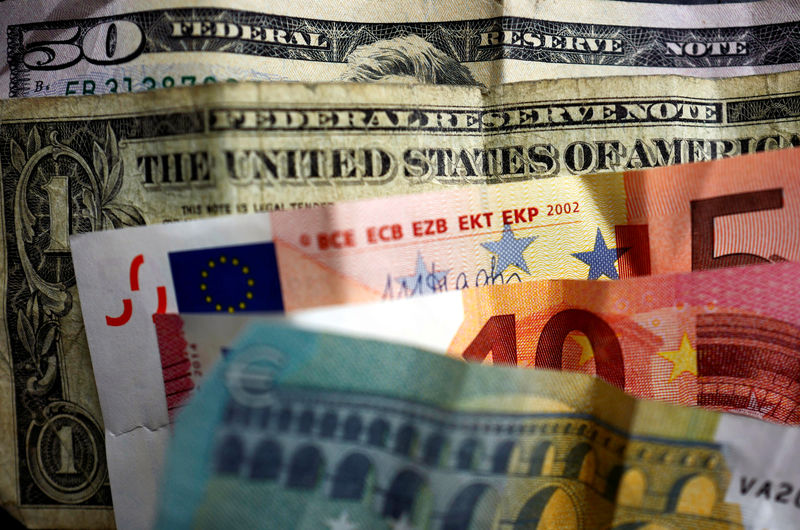 © Reuters.
© Reuters.
By Peter Nurse
Investing.com - The U.S. dollar weakened Friday, as strong gains in U.S. equity futures diluted the need for the safe haven and after a hawkish turn by the European Central Bank boosted the single currency.
At 2:55 AM ET (0755 GMT), the Dollar Index, which tracks the greenback against a basket of six other currencies, edged 0.1% lower to 95.285, having fallen around 2% this week - its biggest weekly drop since March 2020.
Strong corporate earnings from retail online giant Amazon (NASDAQ:AMZN) after the close of the bell on Wall Street Thursday have prompted hefty gains in U.S. equity futures, as well as stock markets in Asia and Europe. This increased confidence has hit demand for the greenback, which is often seen as a safe haven in times of stress.
The currency which has benefited the most is the euro, with EUR/USD up 0.2% to 1.1456, on course for its best week since March 2020.
That said, the main reason for the euro’s gains was ECB President Christine Lagarde’s press conference following the central bank policy meeting, where she acknowledged the mounting inflation risks and declined to repeat previous guidance that an interest rate increase this year was extremely unlikely.
“All this has clearly paved the way for markets to speculate quite freely on a change in forward guidance in March (i.e. explicitly signalling the chance of a 2022 hike) and by extension on the pace, size and timing of ECB tightening, “ said analysts at ING, in a note.
Goldman Sachs (NYSE:GS) now expects the European Central Bank to raise interest rates by 25 bps each in September and December.
“We think that the post-FOMC 1.11-1.13 range in EUR/USD has now given way to a 1.13-1.15 range, which may hold into the March ECB meeting.”
The release of U.S. nonfarm payroll data later Friday could impact this thinking, but with the focus more on inflation a sharp slowdown in jobs growth in January due to the spread of the Omicron Covid-19 variant is unlikely to move the dollar too much.
Elsewhere, GBP/USD edged lower to 1.3590, just off the two-week high of 1.3626 reached on Thursday after the Bank of England raised rates by 25 basis points, as widely expected.
There could be more gains ahead of sterling as nearly half of the BOE policymakers voted for a bigger increase with inflation set to top 7%, more than triple the central bank’s 2% target and over a full percentage point higher than they forecast in December.
AUD/USD fell 0.3% to 0.7117, weighed by Reserve Bank of Australia Governor Philip Lowe preaching patience in terms of rate hikes following the publication of the central bank’s quarterly Statement on Monetary Policy.
Elsewhere, USD/JPY rose 0.1% to 115.09, with the Bank of Japan seen as the most dovish of the major central banks, especially after the ECB’s change in stance.

